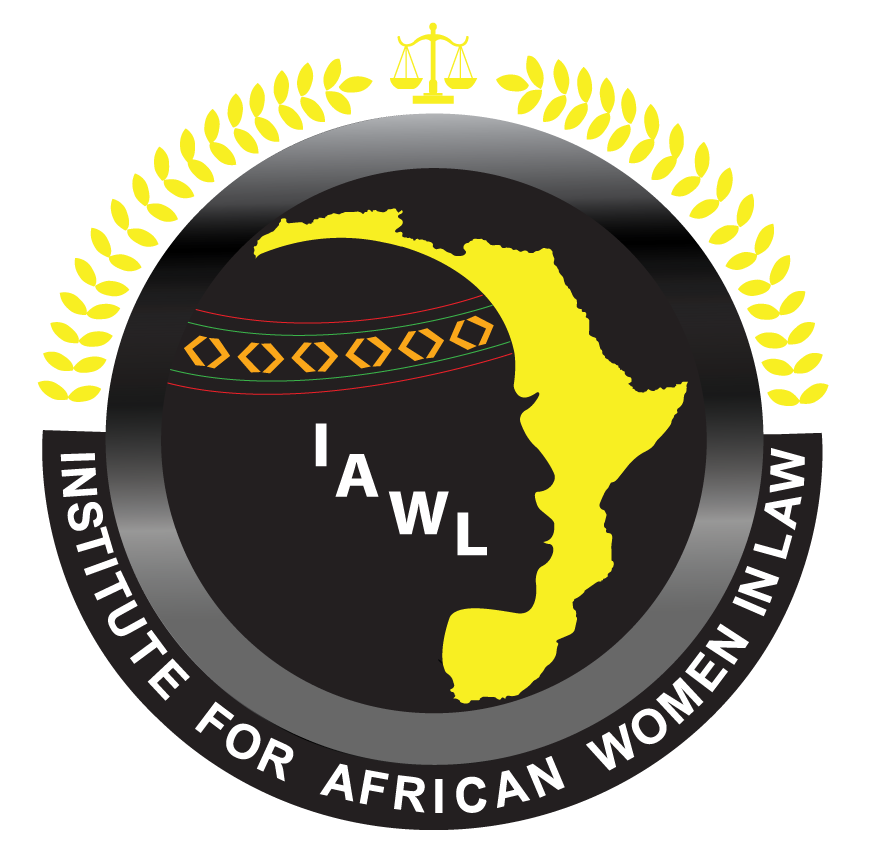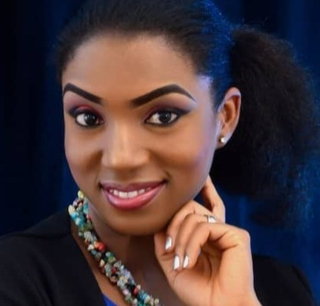Interview with Prof. Oluyemisi A. Bamgbose, SAN, Director of the Women’s Law Clinic (WLC).
- IAWL

- Dec 1, 2021
- 5 min read
Updated: Dec 3, 2021
By. Pedi Obani, Ph.D.

As part of our commemoration of the 16 Days of Activism Against Gender-Based Violence, we highlight the work of women in law who have been advocating for gender justice.
Professor Oluyemisi Adefunke Bamgbose, is a Senior Advocate of Nigeria (SAN) and a distinguished professor of Criminal Law, Criminology, and Human Rights at the University of Ibadan, Nigeria. She is also the Director of the Women’s Law Clinic at the University of Ibadan, in addition to her other leadership roles in several national and sub-national law reform committees and professional organizations. In this interview with Dr. Pedi Obani, Professor Bamgbose, SAN shares highlights of the origins, vision and mission achievements, and future outlook of the Women’s Law Clinic (WLC).
Pedi Obani,Ph.D. (PO): Tell us about the Women’s Law Clinic.
Prof. Oluyemisi Bamgbose, SAN (OB): The Women’s Law Clinic (WLC) is located in the Faculty of Law, University of Ibadan. The Women’s Law Clinic, University of Ibadan, is established to be a specialised Law Clinic for women-related issues. It caters for children and also men who have women-related issues. The Clinic embarks on outreach from time to time on educating and enlightening women and children within select communities on the inherent degrees of domestic violence, and how knowledge of rights could lead to safety. The WLC is headed by a Clinic Director and supported by an Assistant Director and thirteen other Staff Clinicians.The Clinic is made up of Staff Clinicians (law lecturers), who serve as Clinic supervisors, and Student Clinicians who are law students of the Faculty of Law. These students are trained in the areas of street lawyering, client counseling and interviewing, drafting and advocacy skills. This training gives the students a platform to put into practice the theoretical knowledge of law acquired in class. Staff Clinicians supervise the student clinicians whose activities are regulated by a clinic administrator.
PO: How was the idea of the Women’s Law Clinic conceived? And when did the Women’s Law Clinic commence operations?
OB: The Women’s Law Clinic is an initiative of the Consortium for Development Partnerships (CDP) and was under the CDP Project on The Rule of Law Access to Justice. The CDP is a research organization linking different research institutes in West Africa, Europe and the US. It aims to develop a research programme that is policy relevant, build research capacity within the institutes involved and further research collaboration between the different institutes and researchers. It was founded by CODESRIA (Council for the Development of Social Science Research in Africa) and the Programme of African Studies at Northwestern University in the United States of America. Sequel to the mandate of the Consortium for Development Partnerships (CDP) Phase II project which is the research component of the rule of law and access to justice, the Women’s Law Clinic was initially funded by the Northwestern University, Illinois, United States of America and in partnership with the Centre for Law and Social Action (CLASA). The project was identified and aimed at contributing to improve legal education, providing legal aid and representation to (indigent) women and improving research on access to justice as it affected women in Ibadan and its environs. Ibadan is the capital city of Oyo State in the South-west region of Nigeria. The WLC started operating on the 17th of July, 2007.
The Women’s Law Clinic was established as a Non-Governmental Organization (NGO) in the University of Ibadan, in good faith, to address the peculiar legal needs of indigent women in the University community and its environs. After a number of deliberations and preliminary investigations into the needs of the community of Ibadan, it was discovered that the indigent women of Ibadan have very poor access to justice.
PO: What is the vision of the Women’s Law Clinic? Also, what is the mission of the Women’s Law Clinic?
OB: The Women’s Law Clinic has as its mission the education and assistance with pro bono legal services for indigent women. The Clinic provides a legal platform for women, especially the poor, who have little or no access to justice as a result of social and cultural factors. The WLC has as one of its mission, documentation, research and carrying out intervention programmes. At the same time the WLC is a practical laboratory, where Law students are trained to put into practice their theoretical legal knowledge, using clinical legal education. The students, interact with and advise real clients under the supervision and guidance of Staff Clinicians who are Law lecturers in the Faculty of Law and also under the supervision and guidance of the Clinic Administrator. The WLC is a specialised Clinic set up to offer pro-bono services for indigent and vulnerable women. It also trains law students of the University of Ibadan under the supervision of Law lecturers otherwise known as Staff Clinicians, who are all trained lawyers and specialists in Clinical Legal Education.
PO: Could you tell us about the nature of cases that have been handled by the Women’s Law Clinic since its inception?
OB: The Clinic has handled a number of cases on domestic violence, welfare and maintenance of the family and child abuse, custody and adoption cases over the period of fourteen years. It has been discovered that most women who went through the pains and trauma of domestic violence stayed in their marital predicament because of the inability to afford the services of a lawyer to provide legal counsel. Hence, the Clinic has been a succor and resort for this category of women. From 2007 till date, the Clinic has handled approximately five hundred cases.
PO: Tell us one unique characteristic of the Women’s Law Clinic.
OB: The Women’s Law Clinic, University of Ibadan, is the ONLY specialized Women Clinic in all Faculties of Law in Nigeria and West Africa, making it the first and presently the best.
PO: What are some of the main challenges encountered by the Women’s Law Clinic in the pursuit of its vision and mission?
OB: The Clinic has a significant funding challenge, which if surmounted would assist a great deal in its plans to embark on more projects in the nearest future and strengthen her resolve to provide interventions and outreach programs, free legal services through Alternative Dispute Resolution, and train Law Students on the practical aspects of Law and legal practice culture.
PO: What would you say is the greatest achievement of the Women’s Law Clinic?
OB: It is not in doubt that since its inauguration, the Women’s Law Clinic has contributed immensely to the wellbeing of clients and the resolution of cases within and outside of the University environment. There have been so many success stories emanating from the free counseling and legal aid rendered by Women’s Law Clinic. The monitoring of the one-day old baby abandoned at Awba Dam, University of Ibadan, up to the adoption stage by a staff in the University, is one of the landmark cases amongst many others handled by the WLC for the University community. Other cases handled by the WLC include, but not limited to cases of: domestic violence, human rights abuse, marital abandonment of one spouse by the other, custody of children, sexual abuse, maintenance of family, child neglect and adoption, etc. The resolution of these cases has in no doubt brought peace and tranquility to the University and environs. Each time a client walks out of the clinic with a reassuring smile and cheer is a unique achievement for us.
PO: What are your projections for the future of the Women’s Law Clinic?
OB: The Clinic is working hand in hand with other organizations, such as collaborating with the National Human Rights Commission of Nigeria to create new programmes and sensitization events to ensure that the rights of the citizens are well preserved and the widening gap in access to justice for vulnerable people becomes slimmer.
PO: Any parting words?
OB: The duty of creating awareness on human rights and its preservation is very crucial to the development and wellbeing of every nation. There is more work to be done in this regard, therefore all hands must be on deck, as injustice to one is injustice to all. Thank you.
Inquiries:
For all organizations and individuals wishing to partner with the WLC, please contact us info@africanwomeninlaw.com.




